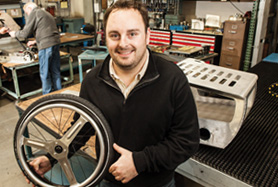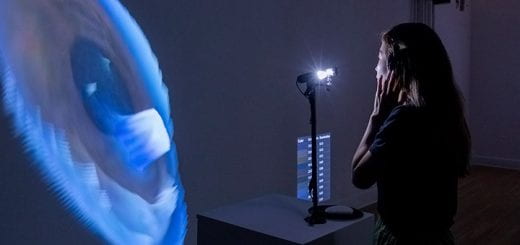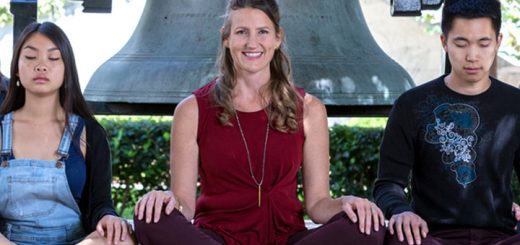Faculty Spotlight: Electrified Transportation
Growing up in Egypt, Mohamed Badawy was fascinated by the landscapes of the Nile River Valley, from the desert oases to the mountains. “However, pollution was growing and taking away from Cairo’s incredible beauty, and putting millions of people at significant health risks,” says the associate professor of electrical engineering and founder of SJSU’s Center of Power Electronic Converters. “And, thus, my interest solidified in solving the challenge of reducing gas emissions.”
He learned about renewable energy systems and quickly discovered that electrified transportation systems were underdeveloped. So Badawy majored in electrical engineering and has since directed his academic, research and industrial work in this field. He and his students are researching “dynamic charging,” which would allow electric vehicles (EVs) to be charged while moving along a highway.
“Consumers may refrain from purchasing EVs due to the limitations of chargers and range anxiety,” Badawy notes. “Therefore, a distributed public charging infrastructure is essential for the future of EVs.” It’s a form of wireless charging that would liberate electric vehicles from the need for high-cost and bulky battery systems, allowing them to charge while in motion. Dynamic charging would require the collaboration of local and federal governments, continued research and funding.
Still, from the technological development in the semiconductor industry to the emergence of electrical vehicles and the wide use of renewable energy systems, Badawy saw the value in building a power electronics program from the ground up that caters to the industry surrounding the university.
Badawy works with students who are “first-generation, underserved minority groups or international students who left the security of their home behind and came to this country to pursue a dream and positively contribute to our society.” His lab works on several projects funded by Silicon Valley companies, which, he says, “enables our students to work on real-world problems and crack industrial technical challenges.”
Since the establishment of the lab, more than 20 students have received master’s degrees and 90 percent of them are working in the valley.
“I hope that we will look back at the days when we had to go to a charging station to charge our vehicles and think of them as something from the distant past,” Badawy says. “More importantly, I hope that the days of fossil fuel cars polluting our roads will end. We are too wise to risk the health of our children and our elderly.”
—Adam Breen




